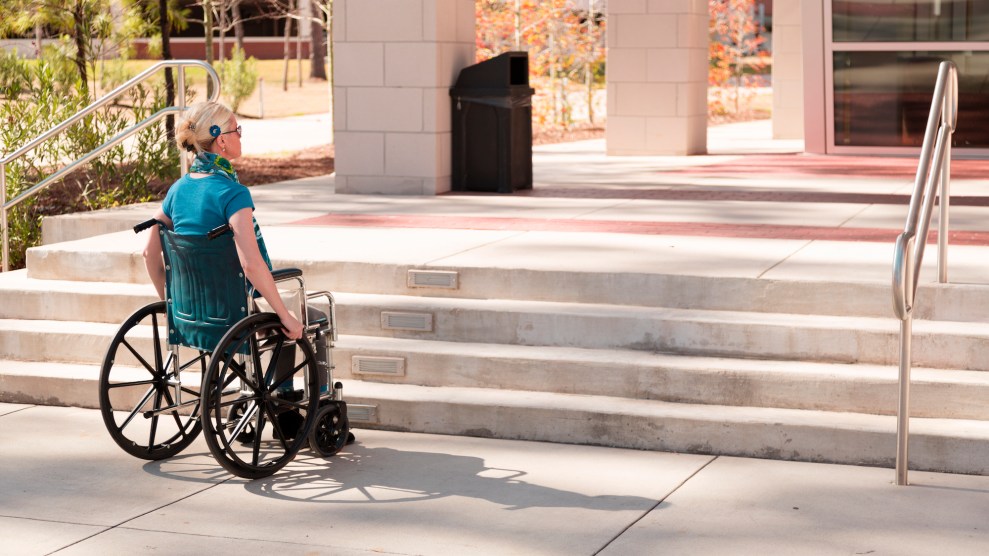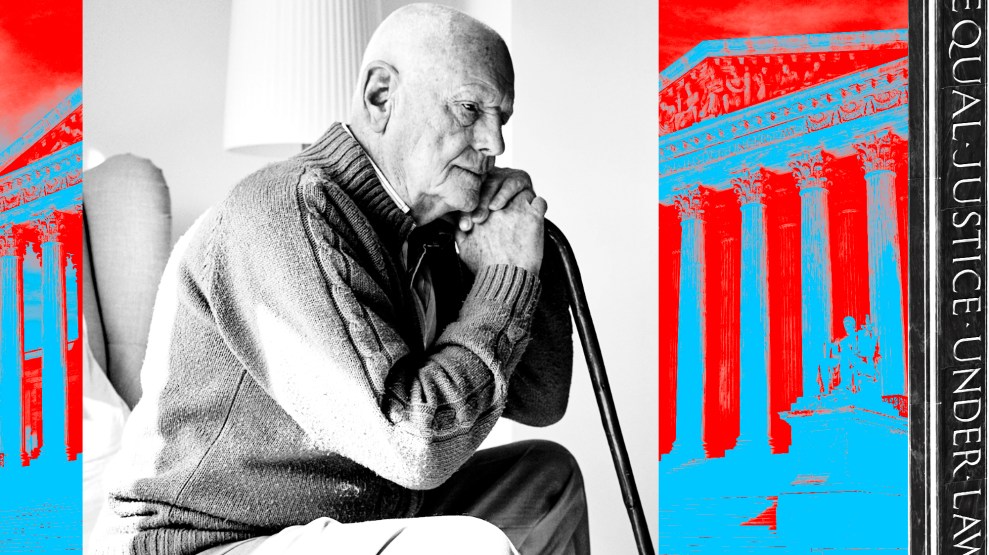
fstop123/Getty
In October, the Supreme Court will hear arguments on a core recourse for protecting disabled people’s civil rights: The ability to sue private businesses for inaccessibility under the Americans With Disabilities Act.
Inaccessibility isn’t just discriminatory—it can also impact disabled people’s quality of life. If an online portal for a private hospital doesn’t work with screen readers, Blind people and others with low vision may face barriers to booking appointments. If a grocery store has steep stairs, some people can’t get in—and those with a cane, for instance, could risk falling.
The case, Acheson Hotels, LLC v. Laufer, came to be after Deborah Laufer, who is disabled, filed around 600 ADA complaints against individual hotels and chains across the United States, in some cases for not having accommodation information available on their websites or not having a feature to book an accessible room. The Supreme Court agreed to hear the case in March, after the First Circuit Court of Appeals ruled in Laufer’s favor. While the ADA was signed into law with bipartisan support in 1990, the civil rights of people with disabilities are now in the hands of SCOTUS’ majority-conservative justices.
When it comes to business accessibility, the ADA is largely enforced by private individuals’ complaints. But there’s “no specific statutory provision that clarifies whether testers have status” under this law, University of Louisville emeritus disability law professor Laura Rothstein says. What will happen is up in the air—while the Supreme Court tends to look to lower courts’ rulings, the current bench also has a trend of ruling in businesses’ favor.
Acheson Hotels’ petition to the court argues against “self-appointed testers,” calling Laufer part of a “cottage industry… in which uninjured plaintiffs lob ADA lawsuits of questionable merit.” Thomas Bacon, one of Laufer’s attorneys, said that wasn’t Laufer’s intent: “Nobody complies with the Americans with Disabilities Act until they’re sued,” Bacon told the Associated Press.
To bring an ADA complaint, according to Rothstein, courts have typically required people “to legitimately intend to go to that store, or that restaurant or that hotel.” If someone is in the area or within driving distance of a place, they could argue that they have standing to sue. (While plaintiffs cannot win damages under Title III of the ADA, they can recover attorneys’ fees.)
In the media, disabled people, whether or not they are “testers,” are sometimes portrayed as litigious for filing ADA lawsuits. But Doron Dorfman, a Seton Hall University disability law professor, says ADA enforcement counts on “private individuals who play the role of a private attorney general.” While the Department of Justice can sue non-compliant businesses, he says, “the department is flooded with other responsibilities, and it’s just not a priority for them.”
The First Circuit’s ruling noted that testers have long been used outside of disability discrimination law. Dorfman points to the 1982 Supreme Court case of Havens Realty Corp. v. Coleman as “the first really important case that recognized testers.” In that decision, justices ruled that a Black tester who had no intention of trying to get a particular house or apartment would still have standing to sue for discrimination under the Fair Housing Act. The Fair Housing Testing Program, under the DOJ’s Civil Rights Division, uses volunteer testers to help conduct investigations, including for housing-related ADA violations. (It is unlikely that Laufer’s case would affect Fair Housing Act testers, Dorfman says.)
ADA standards are constantly evolving, Rothstein says, and “there are small businesses that don’t even know” that their websites need information on how people can access their business in person. The Department of Justice’s most recent relevant guidelines largely focus on web accessibility itself, not advising that restaurants, for instance, need to share how wheelchair users can dine there.
At the same time, even some non-testers living near businesses have been denied standing. In 2000, Clint Eastwood defeated an ADA case brought by a disabled woman because a jury didn’t think she’d tried to use the actor’s resort—even though the woman lived just two hours away, which should have helped her case. (Jurors did require Eastwood to “build a ramp to the registration desk,” Dorfman said.) Eastwood, currently worth a few hundred million dollars, surely had the money to make sure his resort was accessible. Not exactly a small family business.









